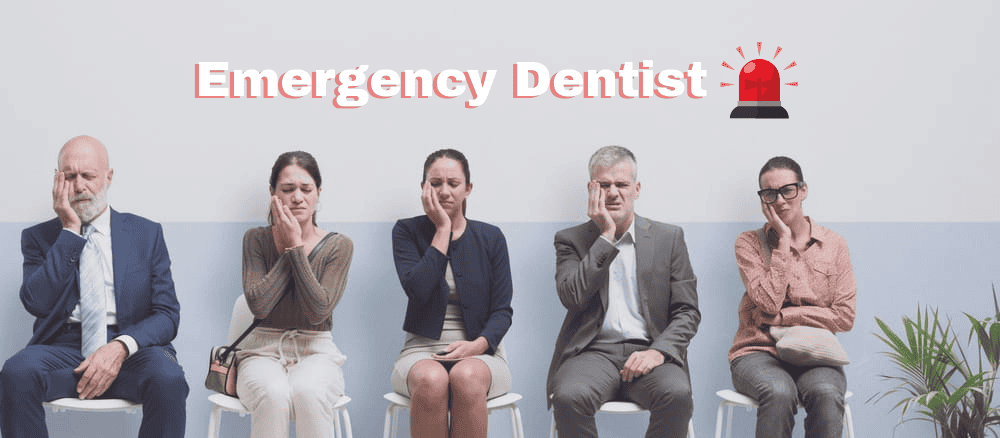As we age, our oral health needs evolve. While the desire for a healthy, comfortable smile remains constant, seniors in Brampton often face unique dental challenges, from managing dry mouth caused by medications to caring for dentures and addressing the effects of age-related wear and tear. Recognizing these specific needs is the first step towards ensuring continued oral well-being throughout the senior years. Good oral health isn’t just about having a nice smile; it’s intrinsically linked to overall systemic health. For seniors, maintaining healthy teeth and gums can impact everything from nutrition and speech to the management of chronic conditions like diabetes and heart disease. Proactive dental care is therefore not a luxury, but a vital component of a healthy aging process.
In this guide, we’ll delve into some of the most common age-related dental concerns faced by seniors and discuss how specialized dental care in Brampton can help address them, ensuring you or your loved ones can enjoy comfort, function, and confidence.
Understanding Age-Related Dental Changes
The natural aging process, coupled with lifestyle factors, past dental history, and medical conditions, can lead to several changes in oral health.

Teeth can become more susceptible to decay, especially around the gum line or beneath existing fillings. Gums may recede, exposing tooth roots which are softer and more vulnerable.
Years of chewing and sometimes teeth grinding can lead to wear and tear. While tooth loss isn’t an inevitable part of aging, it remains a significant concern for many seniors .
Fortunately, with appropriate care, many of these issues can be managed or prevented, allowing seniors to maintain their natural teeth and oral comfort for longer.
Common Age-Related Dental Concerns & How to Address Them
1. Dry Mouth (Xerostomia)
- What it is and why it’s common: Dry mouth occurs when the salivary glands don’t produce enough saliva. While not a direct result of aging itself, it is extremely common in seniors, affecting 20% to 50% of this population. The primary culprit? Medications. Seniors often take multiple prescriptions for conditions like high blood pressure, depression, anxiety, and allergies, many of which list dry mouth as a side effect [kingandwestondental.ca].
- Symptoms and risks: Symptoms include a sticky, dry feeling in the mouth, difficulty speaking or swallowing, a sore throat, altered taste, and bad breath. Lack of saliva significantly increases the risk of tooth decay, gum disease, and oral infections because saliva helps neutralize acids and wash away food particles.
- Management tips: Staying well-hydrated by sipping water frequently is key. Avoiding caffeine, alcohol, and sugary drinks can help. Using over-the-counter saliva substitutes or lozenges can provide relief. It’s crucial to inform your dentist about all medications you are taking so they can assess your risk and recommend professional treatments or prescription-strength products to help manage the condition.
2. Gum Disease (Periodontal Disease)

- Causes and progression: Gum disease is caused by bacteria in plaque that infect the gums and bone supporting the teeth. While it can affect anyone, seniors may be at higher risk due to factors like dry mouth, reduced dexterity affecting brushing/flossing, systemic diseases (like diabetes), and certain medications. Nearly one-third (31%) of Canadians aged 6–79 have at least one periodontal pocket, an indicator of gum disease.
- Symptoms to watch for: Red, swollen, or bleeding gums; persistent bad breath; loose teeth; receding gums; changes in the fit of dentures.
- Prevention and treatment: Prevention hinges on consistent daily oral hygiene (brushing twice, flossing daily) and regular professional cleanings. Treatment ranges from deep cleaning (scaling and root planing) to advanced therapies, including the use of soft tissue lasers for precise gum procedures with minimal discomfort and faster recovery. Early detection is vital to prevent tooth loss.
3. Tooth Loss and Dentures
- Reasons for tooth loss: While less common than in previous generations, tooth loss still affects a significant number of older Canadians, primarily due to untreated decay and advanced gum disease [statcan.gc.ca].
- Impact and Denture Care: Missing teeth can impair the ability to chew properly, affecting nutrition, and can also impact speech and self-confidence. Dentures are a common solution for replacing missing teeth, but they require careful daily cleaning and regular checks by a dentist to ensure a proper fit and to check the underlying gum tissues for health. Poorly fitting dentures can cause sores and lead to infections.
- Alternative Options: For those seeking more stable solutions, options like dental bridges or dental implants offer permanent replacements that function and feel more like natural teeth. Dental implants, in particular, provide a durable foundation for crowns or dentures, helping to preserve bone structure.
4. Impact of Medications on Oral Health
As mentioned with dry mouth, medications play a significant role in senior oral health. Beyond reducing saliva flow, some medications can cause:
- Abnormal bleeding (e.g., blood thinners).
- Changes in taste.
- Enlargement of gum tissue (gingival hyperplasia).
- Oral thrush (fungal infections), especially with steroid inhalers or certain antibiotics.
It is critical to provide your dentist with a complete list of all medications (prescription and over-the-counter) and supplements you are taking at every appointment.
This information helps your dental team understand potential risks and tailor your care plan accordingly.
The Oral-Systemic Health Connection
The mouth is a gateway to the rest of the body. Research increasingly shows a strong link between oral health and overall systemic health, particularly in seniors.
Poor oral health can exacerbate or be linked to:
- Cardiovascular Disease: Inflammation from gum disease may contribute to heart problems.
- Diabetes: There’s a two-way relationship; diabetes can worsen gum disease, and severe gum disease can make blood sugar control more difficult.
- Respiratory Infections: Bacteria from the mouth can be inhaled into the lungs, potentially causing pneumonia, especially in individuals with compromised health.
- Stroke: Studies suggest a possible link between gum disease and increased stroke risk.
Prioritizing dental care is an essential part of managing overall health for seniors.
Accessing Senior Dental Care in Brampton
Finding a dental clinic that understands the unique needs of seniors is important.
Look for a practice that offers a comprehensive range of services, has experience with age-related conditions, provides a comfortable and accessible environment, and takes the time to listen to your concerns.
Many seniors in Brampton may also be concerned about the cost of dental care.
It’s important to be aware of provincial and federal programs designed to help eligible seniors access affordable dental services.
- The Ontario Seniors Dental Care Program (OSDCP): This is a provincial program providing access to free routine dental care for eligible seniors aged 65 and over based on income. Services are provided in public health units or community health centres, or by dentists who have signed an agreement with the province. Information on eligibility and how to apply can be found on the Peel Region Public Health website or the Ontario government website.
- The Canadian Dental Care Plan (CDCP): This new federal plan is being rolled out gradually and aims to provide dental coverage for eligible Canadian residents who have an adjusted family net income of less than $90,000 and no access to private dental insurance. Seniors aged 70 and over are among the first groups eligible to apply. More details are available on the Government of Canada website.
Discussing your financial situation and potential eligibility for these programs with your dental clinic staff can be helpful.
Many clinics, including ours, are committed to helping patients understand their options and access the care they need.
Tips for Maintaining Optimal Oral Health in Seniors

- Brush Twice Daily: Use a soft-bristle toothbrush and fluoride toothpaste. Consider an electric toothbrush if dexterity is an issue.
- Floss Daily: Clean between teeth once a day using floss or interdental brushes.
- Clean Dentures Properly: If you wear dentures, clean them daily as instructed by your dentist. Remove them at night to give your gums a rest.
- Stay Hydrated: Drink water regularly, especially if you experience dry mouth.
- Eat a Balanced Diet: Limit sugary and acidic foods and drinks.
- Quit Smoking: Smoking significantly increases the risk of gum disease and oral cancer.
- Visit Your Dentist Regularly: Schedule check-ups and professional cleanings as recommended by your dentist – typically every six months, but possibly more often depending on your individual needs.
Conclusion: Make Your Smile Look Vivacious Everyday
Senior dental health is a critical aspect of overall well-being. While unique challenges may arise with age, proactive care, understanding common issues, and partnering with a knowledgeable dental team are key to maintaining a healthy smile and quality of life. If you’re a senior in Brampton or a caregiver, addressing dental concerns early and consistently is the best approach. We are dedicated to providing personalized, compassionate care tailored to the specific needs of our senior patients. Don’t let dental concerns impact your comfort and health.
Schedule a consultation at Smile Makers Dental Care in Brampton today to discuss your specific needs and explore your best options for maintaining a healthy, vibrant smile throughout your senior years.
FAQs About Senior Dental Health
- Q: Is tooth loss normal as you get older?
A: No, tooth loss is not an inevitable part of aging. With good oral hygiene and regular professional dental care, most people can keep their natural teeth for life. Tooth loss is typically caused by preventable issues like severe decay or advanced gum disease.
- Q: My mouth feels very dry, especially at night. What can I do?
A: Dry mouth (xerostomia) is very common in seniors, often due to medications [PMC10138597, jcda.ca]. Inform your dentist about all medications you take. Stay hydrated, use sugar-free lozenges or gum to stimulate saliva, or try over-the-counter saliva substitutes. Your dentist can recommend specific products or treatments.
- Q: How often should a senior visit the dentist?
A: Generally, seniors should visit the dentist every six months for a check-up and cleaning. However, individuals with ongoing conditions like gum disease, dry mouth, or complex restorations may need to visit more frequently, as recommended by their dentist.
- Q: I have dentures. Do I still need to see a dentist?
A: Yes, absolutely. Dentures need to be checked regularly for proper fit and wear. Your dentist also needs to examine the tissues underneath your dentures for any signs of irritation, infection, or oral cancer. Regular check-ups are essential even if you have no natural teeth.
- Q: Are there dental programs in Ontario for seniors who have limited income?
A: Yes, eligible seniors aged 65 and over may qualify for the Ontario Seniors Dental Care Program (OSDCP), which provides free routine dental services. The new federal Canadian Dental Care Plan (CDCP) is also rolling out and will cover eligible seniors based on income and lack of insurance. You can find more information on the Peel Region or Ontario government websites for OSDCP, and the Canada.ca website for CDCP. Your dental clinic may also be able to provide guidance.




